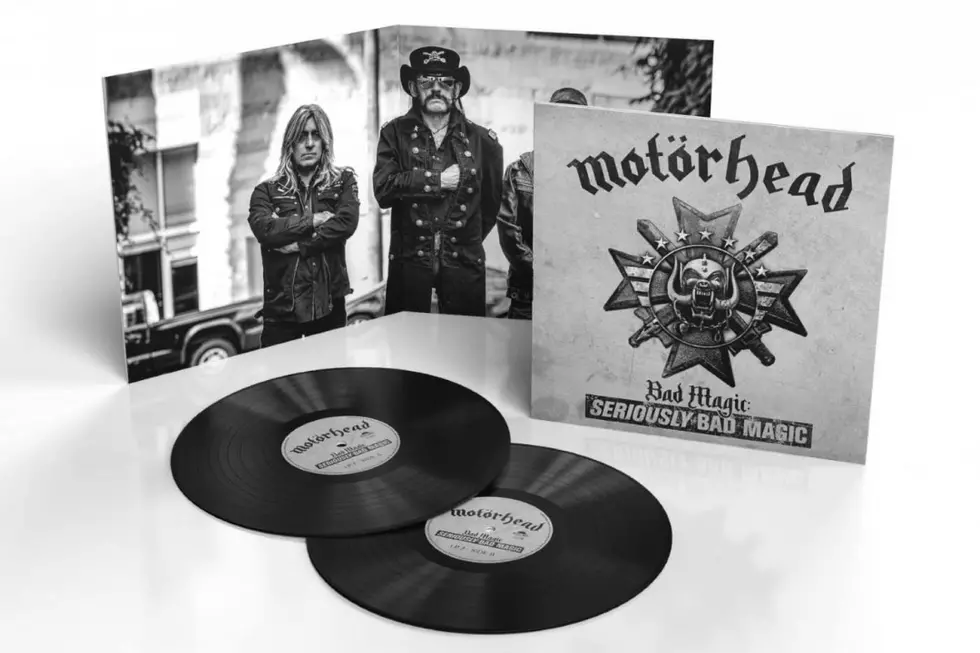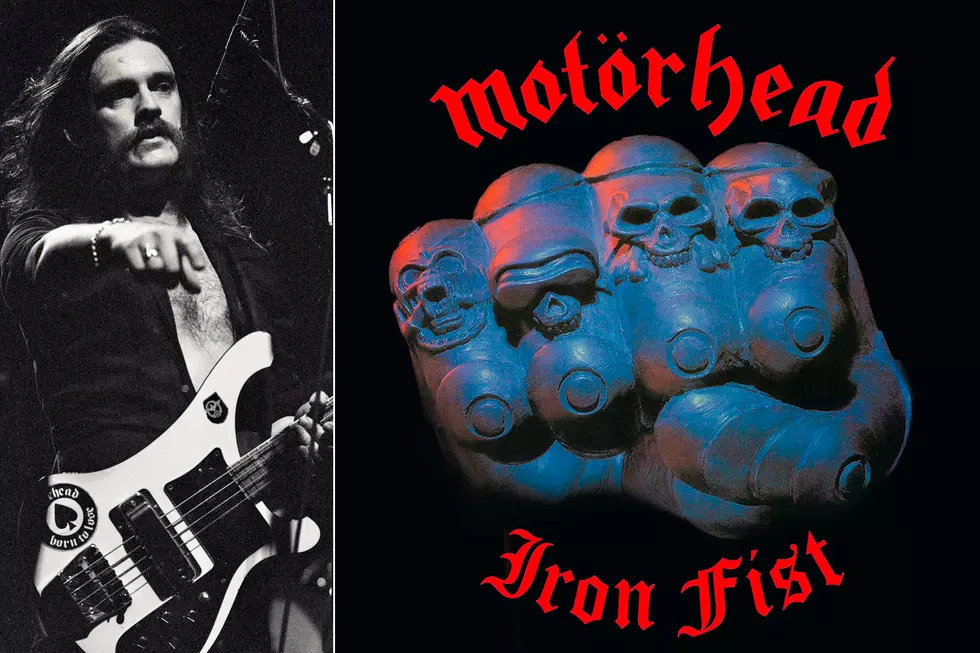Motorhead’s Lemmy Kilmister Dies at Age 70
Lemmy Kilmister has died at the age of 70. Motorhead confirmed his death, saying their frontman passed "after a short battle with an extremely aggressive cancer."
1/19 Update: TMZ has reported that Kilmister's cause of death was officially listed on his County of Los Angeles Department of Public Health certificate of death as prostate cancer, cardiac arrhythmia and congestive heart failure.
The band added that they "cannot begin to express our shock and sadness; there aren’t words. We will say more in the coming days, but for now, please … play Motorhead loud, play Hawkwind loud, play Lemmy’s music LOUD. Have a drink or few. Share stories. Celebrate the LIFE this lovely, wonderful man celebrated so vibrantly himself. HE WOULD WANT EXACTLY THAT." They also revealed how their leader spent his final days: "He had learnt of the disease on December 26th, and was at home, sitting in front of his favorite video game from The Rainbow which had recently made its way down the street, with his family."
Lemmy's final illness followed numerous health issues over the past few years, most recently this summer, when a lung infection forced six shows to either be curtailed shortly after taking the stage or canceled outright. In 2013, he suffered a hematoma and had been fitted with a defibrillator to correct heart problems. Throughout all Lemmy's scares, he maintained his sense of humor, saying "Apparently, I am still indestructible" back in August.
Born on Christmas Eve 1945, in Stoke-on Trent, Staffordshire, England, Kilmister (whose nickname allegedly originated in his habit of asking everyone to “lemmy a fiver”) was abandoned by his father – a Royal Air Force chaplain – at three months of age, then raised by his mother and a strict stepfather in North Wales.
At age 16, he saw the Beatles perform at Liverpool’s Cavern Club, and began teaching himself guitar. Lemmy joined his first bands in the mid '60s, cutting his teeth on northern England’s tour circuit with the Rainmakers, the Motown Sect and the Rockin’ Vickers. By 1967, Lemmy was established in London, rooming with Noel Redding and briefly working as a roadie for the Jimi Hendrix Experience before linking up with psychedelic rockers Sam Gopal in ’68.
He then joined Hawkwind as a bassist in 1972, playing on four albums (including Doremi Fasol Latido and Space Ritual) while lending his already recognizably hoarse vocals to Hawkwind’s biggest hit "Silver Machine." He was fired in 1975, however, after an arrest for drug possession while on tour.
Lemmy plotted his revenge by forming a new band called “Bastard” with erstwhile Pink Fairies guitarist Larry Wallis and drummer Lucas Fox. They later changed their name to Motorhead in reference to the final song Lemmy wrote with Hawkwind, then re-recorded the track for what would have been Motorhead's debut, On Parole. United Artists, the fledgling trio’s former label, rejected the LP, however. Almost two years would pass before Lemmy and his new cohorts, guitarist "Fast" Eddie Clarke and drummer Phil "Philthy Animal" Taylor, released updated versions of those songs as Motorhead’s eponymous 1977 debut.
After another year of ruthless touring, the trio truly hit their stride behind a string of legendary albums in Overkill, Bomber and Ace of Spades. This era of success was capped by the live album No Sleep ‘til Hammersmith, which debuted in 1981 at No. 1 on the U.K. charts – an astonishing feat, considering Motorhead's incomparably raw and frantic sound had some critics labeling them the “worst band in the world.”
For hard rock and heavy metal fans everywhere, however, Motorhead were now proven royalty. Their influence on the burgeoning speed and thrash metal movements of the '80s was second to none, and though their career fortunes fluctuated – and numerous lineup reshuffles followed – Motorhead's underground credibility rarely wavered.
Along the way, Lemmy earned a hallowed stature as one of the genre’s elder statesmen. He could be found sharing his wisdom amid the moronic debauchery of Penelope Spheeris’ The Decline of Western Civilization, Part 2, composing lyrics for Ozzy Osbourne’s No More Tears LP, taking on numerous cameo roles in film and TV, and even documenting his bittersweet accomplishments in 2010’s Lemmy: 49% Motherf**ker, 51% Son of a Bitch documentary.
Meanwhile, Motorhead kept right on touring and recording, collecting a Grammy in 2005 for Best Metal Performance and issuing a grand total of 22 studio albums. Their no-nonsense approach to rock n' roll allowed them to bridge the gap between both metal and punk worlds, and they were a tremendous influence on many bands – most notably Metallica.
They eventually found stability too, as 2013's Aftershock marked the 20th anniversary of a latter-day Motorhead lineup also featuring guitarist Phil Campbell and drummer Mickey Dee. Lemmy Kilmister's final album arrived just this summer, confirming his legend once more. Bad Magic became a Top 40 Billboard hit, topped other international charts and reached No. 10 in the U.K.
Motorhead Also Lost Phil 'Philthy Animal' Taylor in 2015
30 Historic Moments from Lemmy's Life
More From Ultimate Classic Rock









